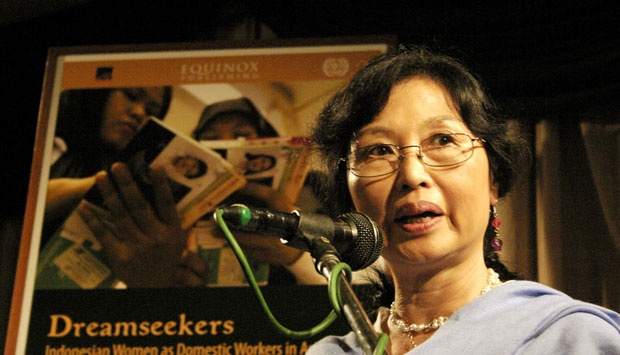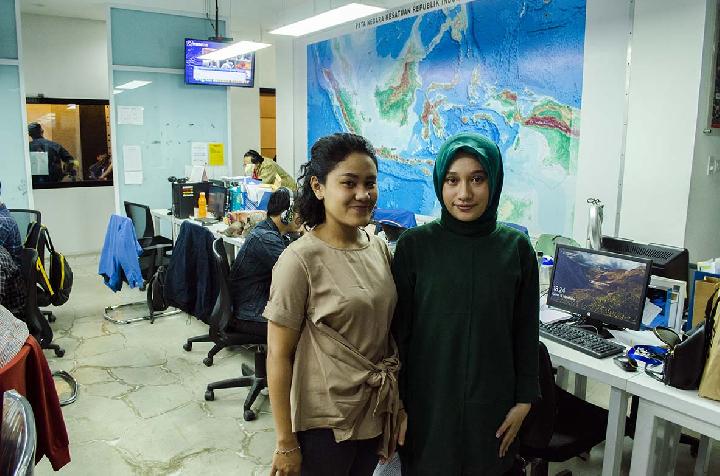
Woman is a special creation of God. Every individual, man or woman, on the face of this earth is associated, even related, to a woman. If you are a man, you may not have a wife or a sister, but you must have a mother, unless you're a robot.
Woman has been the source and the inspiration of copious romantic as well as romanticized poetry, untold numbers of proverbs and songs. Does that make men respect women? Not necessarily. Note that woman is also generously quoted in debasing, obscene swear-words.
Women have been abused in many ways. They are victims of rapes, domestic violence, workplace discrimination and sexual harassment. And the perpetrators more often than not, will do that with the assured knowledge of impunity. Even laws which specifically spell out protection for women, are not always enforced.
In most cultures, convention places woman as second to man. In household arrangements, while she is the nurturer, the care-giver of her family, the first teacher of the children, and nowadays very often, a co-income-earner, in an ideally conventional domestic situation, she still has to defer to her man.
When placed in a socio-cultural frame, the role of woman undergoes a curious process. As the complexity of the social convention increases, her power decreases. Let us take Australia and Indonesia as examples for comparison.
Australia has a unique history. Its non-aboriginal society is just over two centuries old. The social convention, inherited originally from the British, enriched by some European, and now some Asian, cultures, is tampered with its powerful historical beginnings, which were very much rooted in egalitarianism. So while we cannot presume that women are equal to men in all aspects of life, we can say that in Australia, they are not desperately trapped in immutable social convention.
While Australia is not exactly a classless society, the class division is not very pronounced. This may have a lot to do with general income parity. For instance, a plumber in this country can easily earn more than a university lecturer, and a company director can be next-door neighbours with a truck driver.
It is not uncommon therefore for people to make friends and socialize across social classes. And marriage between the son of a bricklayer and the daughter of a merchant banker would not necessarily raise eyebrows publicly, though it may become a topic of private conversations.
The general sense of fairness tends to apply across the board, and just as importantly, backed-up by legislation which is usually enforced. A woman abused would inspire outrage regardless of whether she is a prime minister or a factory cleaner. Her entitlement to seek redress is not influenced by her position in society. Of course other elements may come into play and may prevent her from reporting the crime, such as her fear of being dismissed if the abuser happens to be her boss, or of breaking up the family if she is abused by her own husband. In extreme cases, at least in big cities, women who manage to leave domestically violent homes can go to a women's refuge.
If we look at the situation in Indonesia, we see many more bars and hindrances to women obtaining justice and fairness. The layers of tradition abetted by weak - in some areas almost none - law enforcement serve as asset of thick fog separating women from a more fair and just world.
In big cities, the circumstances are more complex. Among the well-off middle class, while what is regarded as the most ideal place for a woman is in the home looking after her husband and children - albeit with the help of a number of domestic staff -, it is now somewhat acceptable if she joins the workforce (especially holding socially respectable jobs), à proviso she should promptly leave as soon as her husband expresses his displeasure at the arrangements. If she has an abusive husband, she'll most likely keep it to herself because it is an enormous social disgrace and a sure face-loser.
If a woman was born or married into a not-so-well-off middle class, and wants to join the workforce, either to improve the family finances or to pursue a particular career, she may find it easier if the family is broad-minded or harder if the family is obsessed with wanting to maintain a front of being better-off than they actually are. If she is abused by any member of her family, she'll more likely keep it to herself than report the misdeed. Even if she reports it, she may not get anywhere unless she is well-resourced financially as well as mentally, because justice in this country is expensive and achieving it requires steely determination. This is because domestic violence is not deemed high priority outside the human rights NGO circles and bringing it to the policy-makers' and law enforcers' attention is like breaking a strong iron door with a penknife.
In working class situations, where women joining the workforce or involved in small business activities are largely normal, theoretically they should have more bargaining power, but in practice, it is not necessarily the case. They are still liable to be bullied by their husbands. The combination of brawn power on the husbands' part and deeply-rooted convention in the community makes the women virtually powerless. Worse still, in some cases, men who are known to 'allow' their wives to have their own way, are ridiculed by other men and denounced as wimps.
In rural villages, where accepted behaviour is effectively determined by age-old, mostly agrarian, traditions, and state legislation is like something from another world, everybody - man or woman - has very little choice but to conform. However, as most agrarian societies are basically patriarchal, women still lose out, especially in situations dominated by conflict. I have come across women who ran away from their villages to big cities not only seeking work, but also to escape domestic violence where the perpetrators were their husbands or their fathers. 'Report them?' they asked, half laughing half incredulous, 'To whom? Nobody'd take any notice. Besides, that's just asking for more trouble!' Change, if it happens, happens very slowly.
And just as critical in this unsatisfactory situation is, there is hardly any connectedness between women from different social classes. A domestic servant who knows that her male employer abuses her female employer, would at best feel sorry for her, but has no clue as how to help or assist her, even if she wanted to. 'If she can't help herself, how could I? I am only a domestic servant!' she'd say, and become resigned to it.
A female employer, at discovering that her husband is sexually abusing their domestic servant, in most cases would dismiss the servant, if not verbally and physically abuse her herself. Her friends and family would rarely want to interfere if they happened to know. So not only are they unlikely to turn to the law as a recourse, they each in their positions are alienated from one another.
As it is the case in Australia, there are organizations in Indonesia who help women who come to grief, but they have limited capabilities. First, there are not enough of them. Then they are not always able to find the women who need their help to offer it. When they do, in most cases, they rely on volunteers to provide them accommodation, and if they manage to go further, accompany the women when they have to testify in various tribunals.
The endeavors of a number of advocacy groups giving women self-assertiveness training is laudable, this has to be accompanied by raising community awareness of the whole unbalanced situation. Most people are offended by injustices and unfairness, so it is important to let them see that they are surrounded, even sometimes inadvertently involved, in perpetuating an unfair system.
DEWI ANGGRAENI
*Dewi Anggraeni is a Melbourne-based contributor, and an adjunct research associate at the School of Political and Social Inquiry, Faculty of Arts, Monash University, Melbourne, AUSTRALIA























